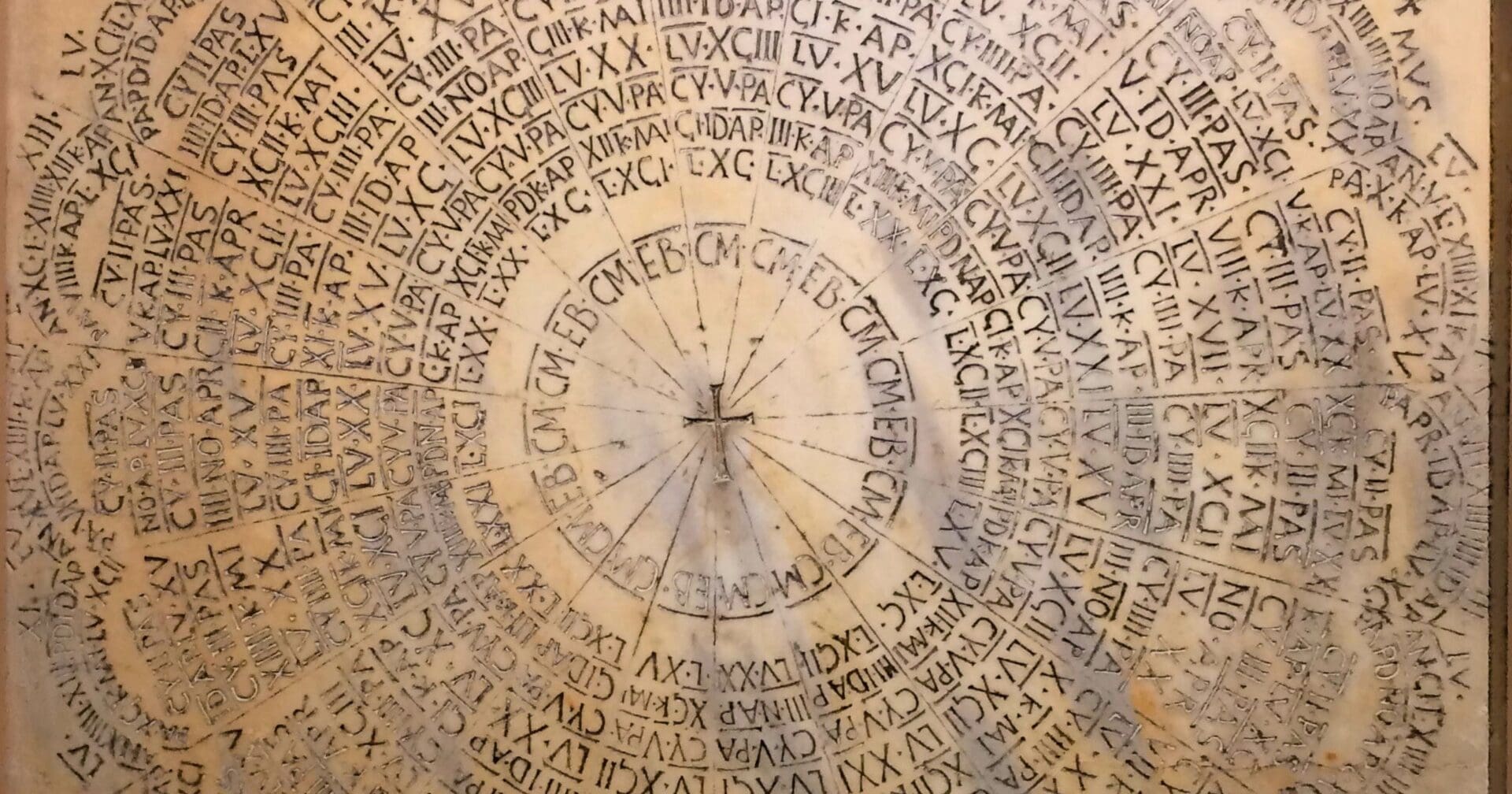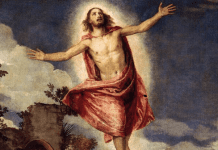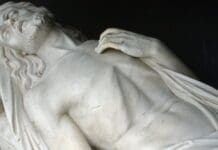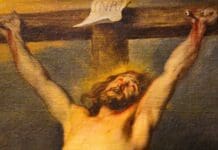Easter: the feast of feasts and the solemnity of solemnities. The principle feast of the liturgical year, when we celebrate Easter we celebrate Christ’s Resurrection from the dead and the ultimate triumph of good over evil, sin, and death. Christ rose from the dead on the third day following his crucifixion, a Sunday. While we always celebrate Easter on a Sunday, have you ever wondered why Easter falls on a different date every year?
“When he had risen, early on the first day of the week, he appeared first to Mary Magdalene, out of whom he had driven seven demons.” – Matthew 16:9
Understanding why Easter is a movable feast requires some context from the earliest days of the Church, and the feast’s relation to the Jewish Passover. The same night the Jews sacrificed their paschal lamb for the feast of Passover, so too was the true Paschal Lamb, Jesus Christ, the Lamb of God, slain on the cross. For the Jews, determining the date of Easter was easy, it would be the day after the 14th of Nisan, the 15th day of the first month of the Hebrew Calendar. Easter would be celebrated on the 15th of Nisan, right?
The Jewish calendar has a foundation of 354 lunar days, however at the time Christians in the Roman Empire used the Julian Calendar, based on solar days. Additionally, the Jewish calendar had an extra intercalary month added every fourth year. Therefore, a date in the Jewish calendar can never be transposed and aligned with certainty into the Julian or other solar-based calendars. While some Christians decided to just celebrate Easter on the 14th of Nisan (a practice called Quartodecimanism), a majority used another system to determine the date of Easter.
Because the Sunday after the 14th of Nisan was the historical date for the Resurrection, that Sunday became the Christian feast of Easter. Easter was then celebrated the first Sunday after the first full moon after the Spring equinox, a determination made by the Council of Nicaea in 325 A.D. This system of determining Easter based off the first full moon after the Spring equinox means the date for Easter is variable.
“At this meeting the question concerning the most holy day of Easter was discussed, and it was resolved by the united judgment of all present that this feast ought to be kept by all and in every place on one and the same day” – Life of Constantine (III, xviii sq.)
During the Council of Nicaea, the Spring Equinox was March 21st on the Julian Calendar. However, by 1500 A.D it had drifted all the way back to March 11th. To remedy this, Pope Gregory XIII created the modern Gregorian calendar to correct the drift and more accurately determine the date for Easter. However, the Orthodox Church still uses the Julian Calendar to determine Easter. Therefore, Easter in the Catholic and Orthodox Church is celebrated at different times.
In 2017, the dates for Easter in the Catholic and Orthodox Church coincided to be on the same day. In efforts towards ecumenism, Pope Francis discussed an Easter unification with Patriarch Tawadros of the Eastern Orthodox Church, saying:
“I have long-time friendship with Patriarch Tawadros. He is leading his Church ahead and carrying Christ’s name and he is a staunch supporter of the idea of appointing a unified date of the Easter, even a greater supporter than myself. And we’re trying to find a way to do it.”
Photo credit: Apatak via Wikimedia Commons


















[…] Shadowy World of ‘Euthanasia Fundamentalism’ – Michael Cook, Mercatornet The History Behind Why Easter Is on a Different Day Each Year – Billy Ryan, uCathlic Politician’s Wife Healed of Cancer – Credits Our Lady of […]
The fact that at present the dates of Easter are not the same for all Christians was an unexpected consequence of the Gregorian calendar which the secular world also uses today. The ancient Church, however, was very concerned to have uniformity in this matter (e.g. Nicea). Urgent talks are needed at the highest level to harmonize the celebration of Easter by all Christians. The prayer of Jesus was that “all be one” and clearly we could start with the date of Easter — surely it is within our reach and it is not something involving complicated theological discussions.
Easter Sunday is the first Sunday following or on the first fulll moon following the Spring Equinox.